
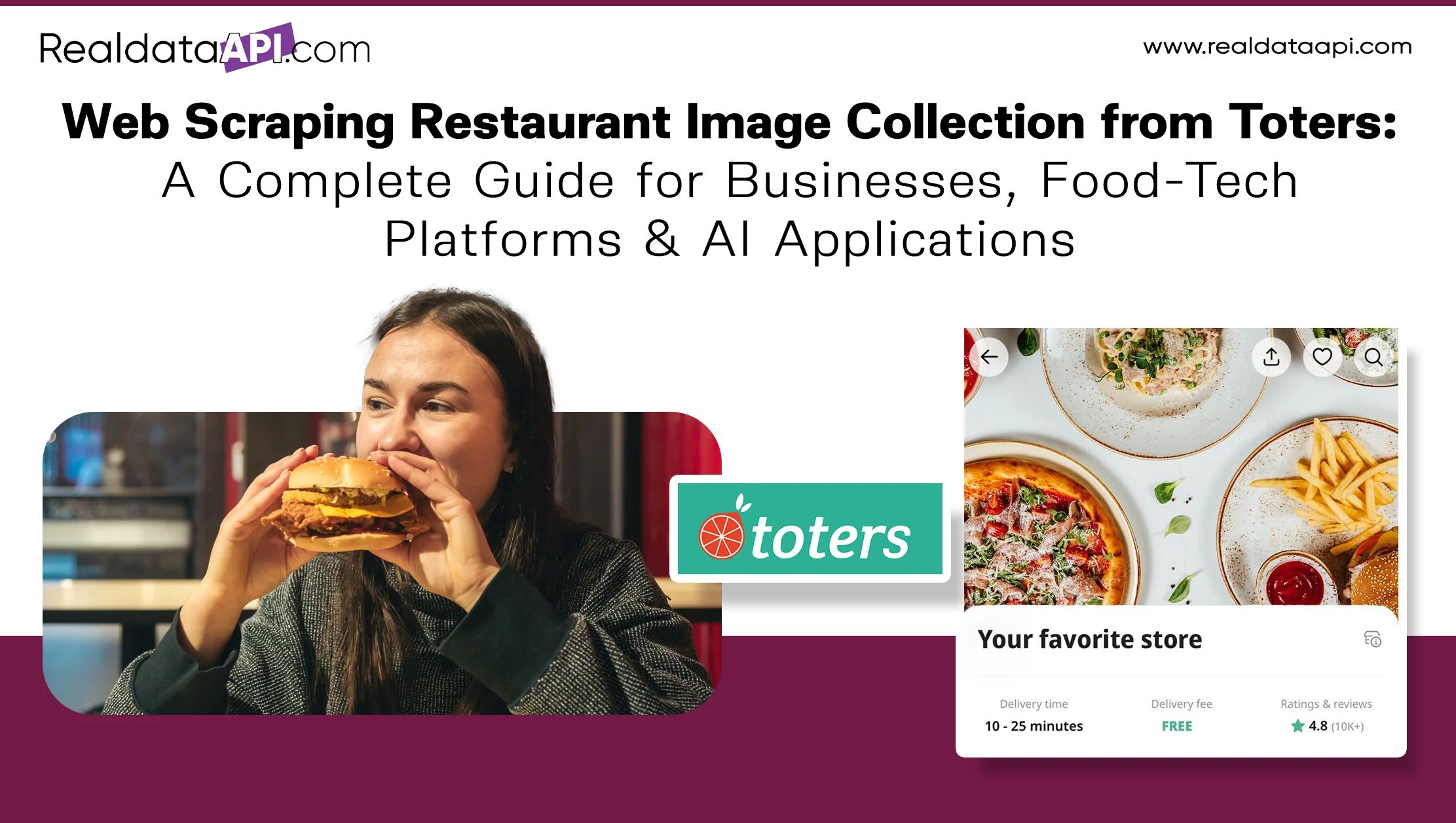
Introduction
In the fast-growing food delivery ecosystem of the Middle East, Toters has quickly emerged as a leading platform enabling customers to order food, groceries, and daily essentials across Lebanon, Iraq, and other expanding markets. With thousands of restaurants listed and an ever-growing range of cuisines, Toters hosts a massive repository of valuable data—especially restaurant images.
From restaurant logos and banner images to dish photos and menu visuals, Toters Delivery API contains a rich library of high-quality images that businesses can use for competitive research, food-tech optimization, AI training, menu digitization, brand benchmarking, and more.
However, manually collecting thousands of images from Toters is time-consuming and inefficient. This is where web scraping restaurant image collection from Toters becomes a powerful solution. Using automated crawlers, APIs, and scraping tools, businesses can extract structured image datasets covering restaurants, menu sections, dishes, cuisines, and promotional banners across all Toters-supported locations.
This comprehensive guide explains why Toters restaurant image scraping is useful, how it works, what data you can collect, the best use cases, challenges, legal considerations, and why businesses prefer automated scraping solutions over manual data collection.
Why Scrape Restaurant Images from Toters?
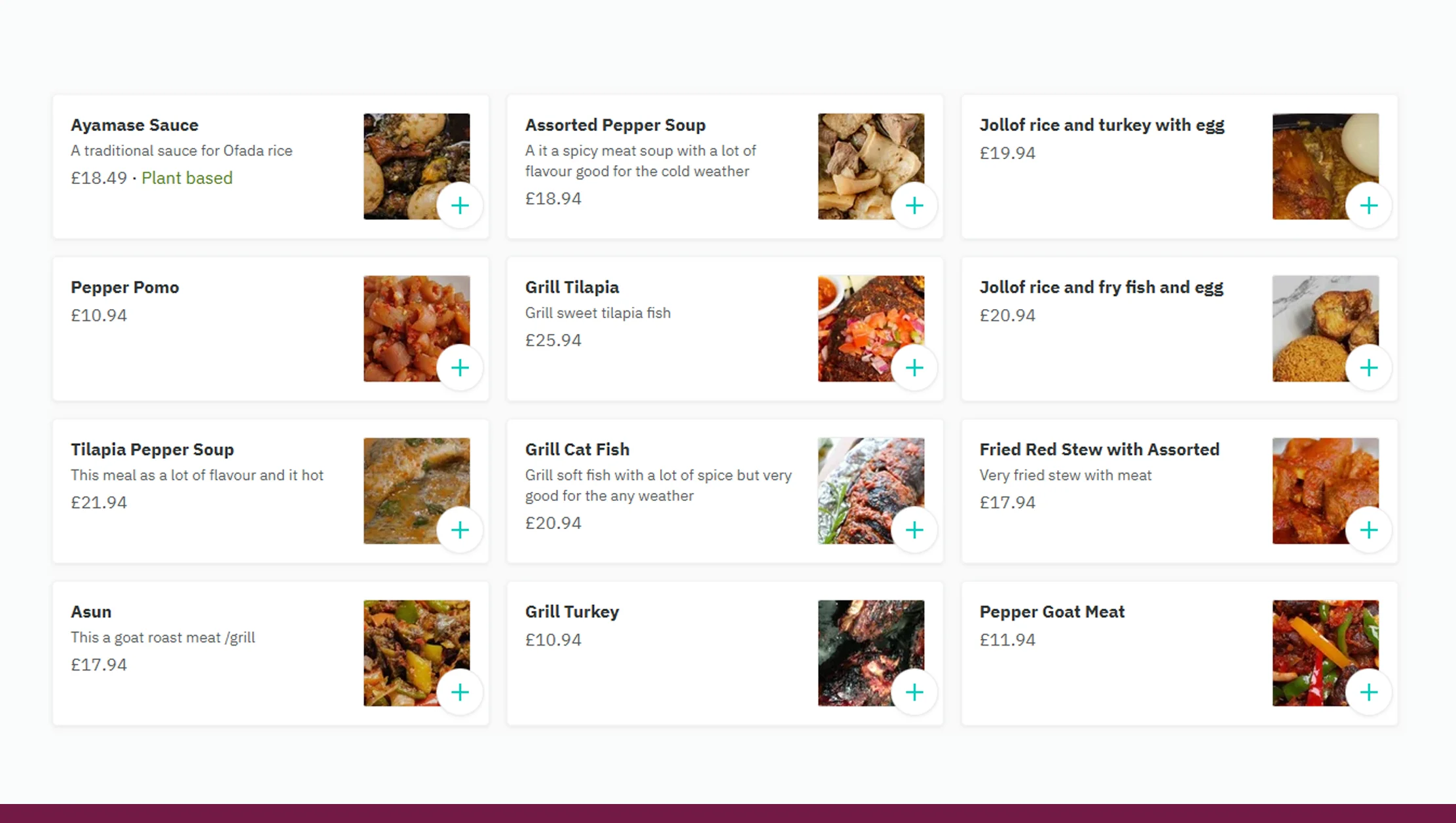
Toters' visually appealing interface is heavily optimized around restaurant visuals. High-quality images influence customer behavior, improve conversions, and enhance menu browsing. For businesses analyzing the food-tech industry, restaurant imagery provides deeper market insights.
Key Reasons Companies Scrape Restaurant Images from Toters:
Competitive Benchmarking
Food aggregators, app developers, and restaurant chains need to compare:
- Visual branding
- Logo styles
- Banner themes
- Dish presentation
- Photography quality
- Cuisine-based variations
Scraping images offers insights into how top restaurants attract customers visually.
AI Dataset Creation (Computer Vision Training)
Businesses developing AI tools for:
- Food recognition
- Cuisine classification
- Dish identification
- Calorie estimation
- Image-based search
- OCR extraction
...rely on large volumes of real-world food images. Toters offers a diverse, high-quality dataset for AI model training.
Menu Digitization & Enrichment
If you're building:
- Restaurant listing websites
- Menu pricing tools
- Ordering apps
- Aggregators
- Cloud kitchen dashboards
Restaurant and menu images collected from Toters provide high-quality visual content to enhance your platform.
Restaurant Brand Monitoring
Chains track:
- Image consistency
- Branding changes
- Updated menu photos
- Seasonal promotions
Toters scraping helps maintain branding accuracy across platforms.
Food Delivery Market Research
Visual patterns reveal:
- Trending cuisines
- Popular dish types
- Seasonal food promotions
- High-performing visual styles
Images help decode consumer preferences in different regions.
Social Media & Marketing Intelligence
Brands analyze how competitors present meals visually on Toters to replicate or outperform these images in campaigns.
What Restaurant Image Data Can You Scrape from Toters?
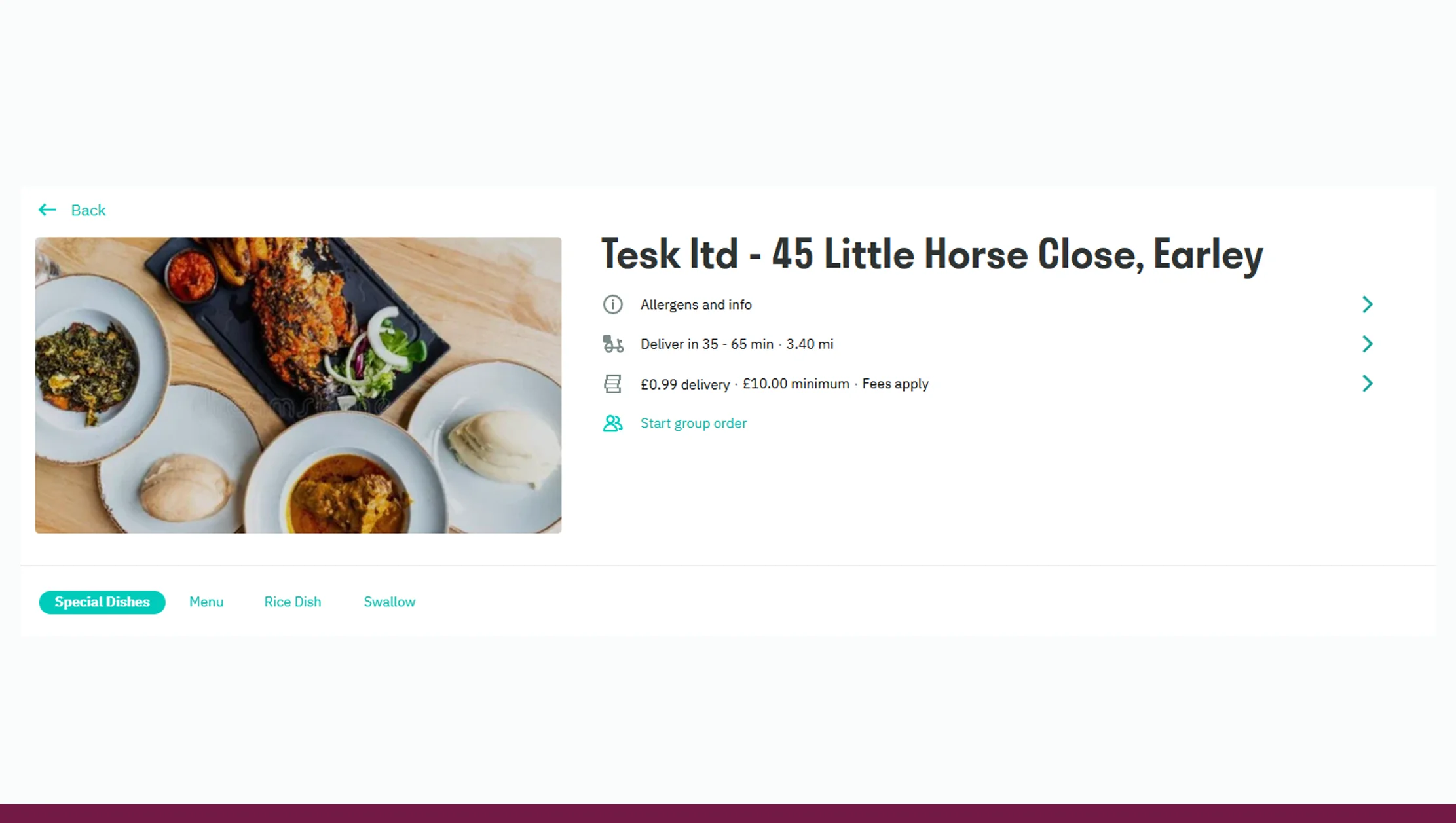
A Toters scraper can extract a wide range of images and metadata fields.
Restaurant-Level Imagery
1. Restaurant Logo
Used for:
- Brand recognition
- Competitive research
- UI/UX elements
2. Restaurant Banner Image
Typically includes:
- Photos of signature dishes
- Storefront visuals
- Thematic branding
3. Cover Photos
Some listings display cover or background images, useful for:
- Aesthetic benchmarking
- UI/UX analysis
Menu-Level Imagery
4. Category Images
Examples:
- Burgers
- Pizza
- Salads
- Desserts
- Drinks
These help classify visual themes by cuisine.
5. Dish/Item Images
The most valuable dataset:
- Full-resolution dish photos
- Multiple variations of popular items
- Image angles, lighting styles, plating, props
- Seasonal or promotional images
Promotional & Marketing Graphics
6. Carousel Ads / Promo Banners
Restaurants often upload:
- Limited-time deals
- Offers with images
- Combo meal visuals
Scraping these helps benchmark promotional graphics.
Metadata Extracted Along with Images
Alongside images, you can gather:
- Restaurant name
- Cuisine type
- Menu sections
- Dish names
- Dish descriptions
- Price
- Ratings & reviews
- Delivery availability
- Opening hours
- Branch locations
This transforms images into a usable structured dataset.
Use Cases of Toters Restaurant Image Scraping
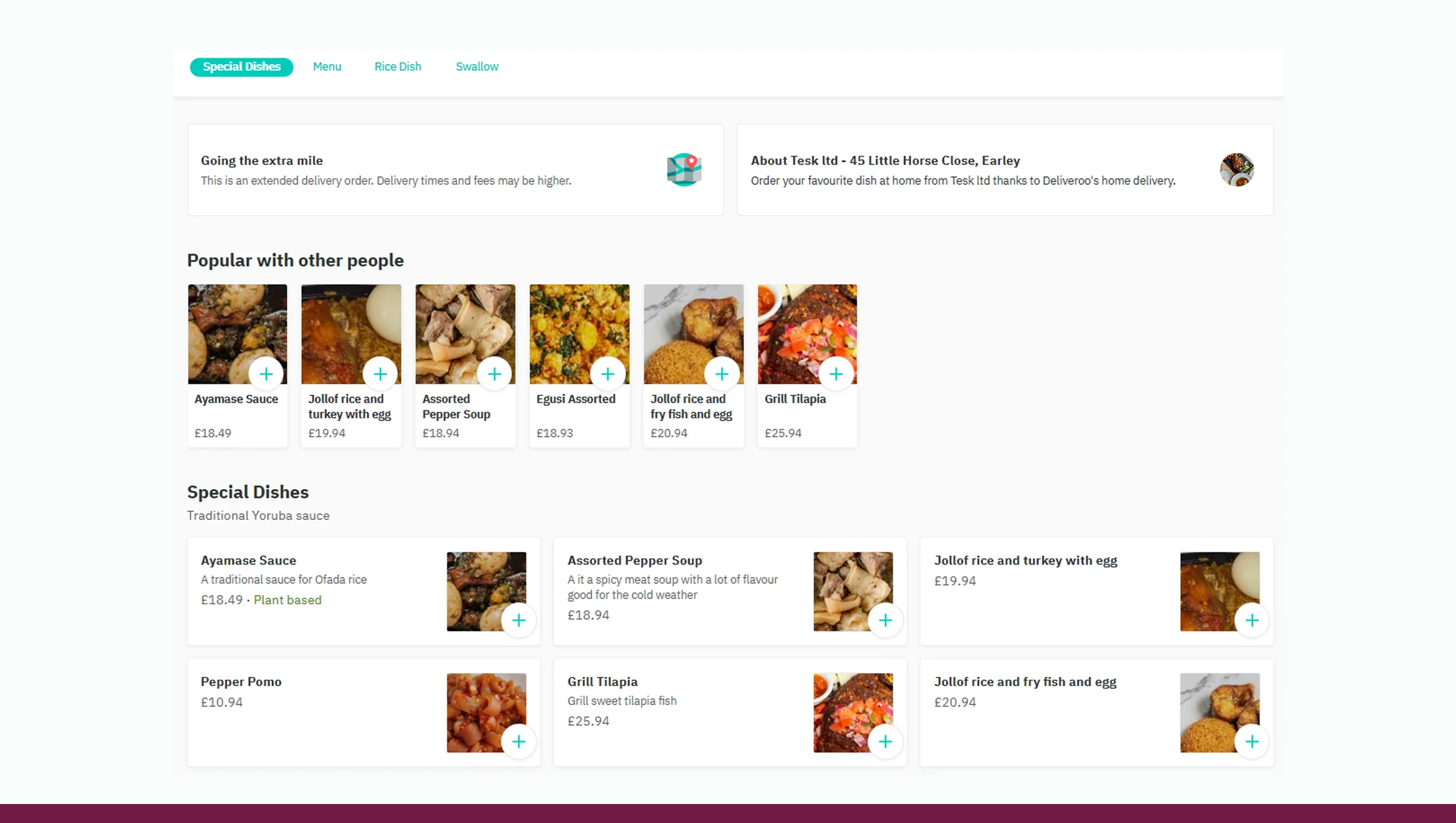
Scraping restaurant images provides value across multiple industries:
1. Food Delivery & Aggregator Platforms
Apps like Zomato, Uber Eats, Talabat, Deliveroo, and others use Toters Food Dataset to:
- Compare competitor imagery
- Improve menu photo standards
- Train algorithms for recommendations
2. Restaurant Chains & Cloud Kitchens
They analyze:
- Competitor menu imagery
- Visual branding strategies
- Dish presentation styles
- Seasonal campaign designs
3. AI & ML Companies
Using restaurant images from Toters, they build:
- Food recognition models
- Dish classification engines
- Calorie estimation systems
- Computer vision datasets
4. Marketing & Advertising Agencies
Agencies use image scraping for:
- Creative analysis
- Ad campaign benchmarking
- Social media optimization
5. Market Research Firms
They examine:
- Regional cuisine popularity
- Visual menu trends
- Image-driven purchase behavior
6. Price Comparison & Menu Intelligence Tools
Adding images enhances:
- User experience
- Dish selection accuracy
- Restaurant discovery
7. Nutrition & Food Logging Apps
Dish images scraped from Toters help develop:
- Image-to-calorie systems
- Food logging automation
- Visual diet tracking
How Web Scraping Restaurant Images from Toters Works
Scrape Toters App for Restaurant Menus and Delivery Data is a multi-step process that involves:
Step 1: Identify Target URLs
Toters has:
- Restaurant category pages
- Restaurant profile pages
- Menu item pages
- Promotion carousels
Each page contains different image types.
Step 2: Analyze Website Structure
A scraper must detect:
- Image tags
- Lazy-loaded images
- Dynamic JavaScript elements
- Image container CSS classes
Step 3: Handle API Calls
Toters often fetches data using internal JSON APIs. A smart scraper captures:
- Restaurant IDs
- Menu details
- Image URLs returned by API endpoints
Step 4: Download Images
Images are fetched in:
- High resolution
- Standard resolution
- Thumbnail format
The scraper must avoid duplicates and preserve quality.
Step 5: Store Metadata
Data saved alongside the images may include:
- Restaurant name
- Cuisine
- Item name
- Price
- Category
- Ratings
Step 6: Automate Daily or Weekly Runs
Toters updates menus often, so continuous scraping ensures up-to-date image libraries.
Challenges in Scraping Toters Restaurant Images
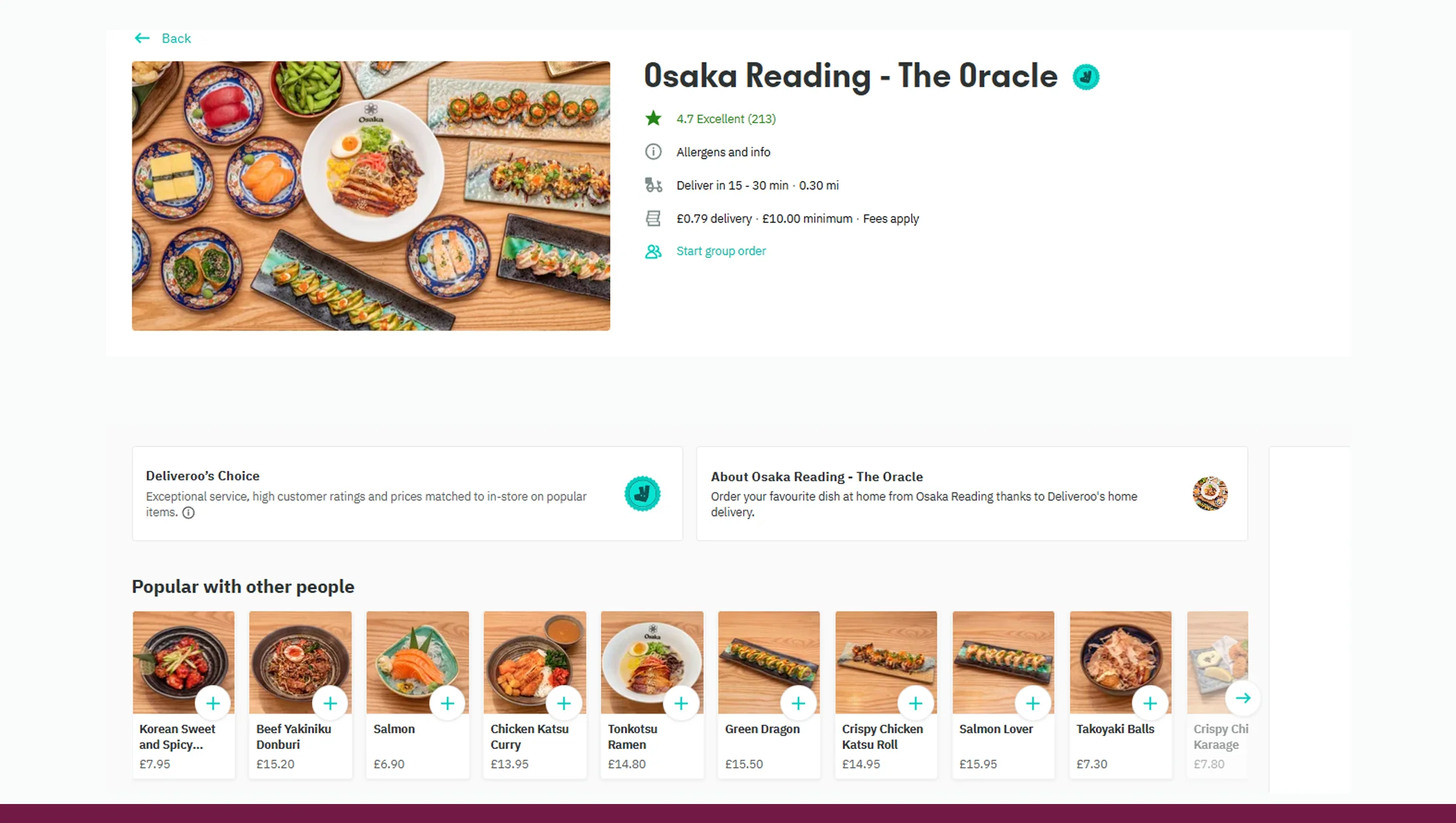
Scraping Toters is not always straightforward due to:
- Dynamic Website Rendering
Many image URLs load through AJAX or React components. - Anti-Bot Protection
Toters may throttle or block excessive crawling activity. - Paginated Menus
Some restaurants have hundreds of dishes spread across multiple sections. - Large Image Volumes
Downloading 10,000+ images requires:- Parallel requests
- Optimized storage
- Duplicate detection
- Geo-Location Requirements
Toters content may vary across:- Beirut
- Baghdad
- Erbil
- Other cities
- File Naming & Tagging
Unorganized image dumps are useless.
Proper naming structure is crucial:- RestaurantName_DishName_Image001.jpg
Customized scraping avoids these hurdles and ensures clean datasets.
Ethical & Legal Considerations
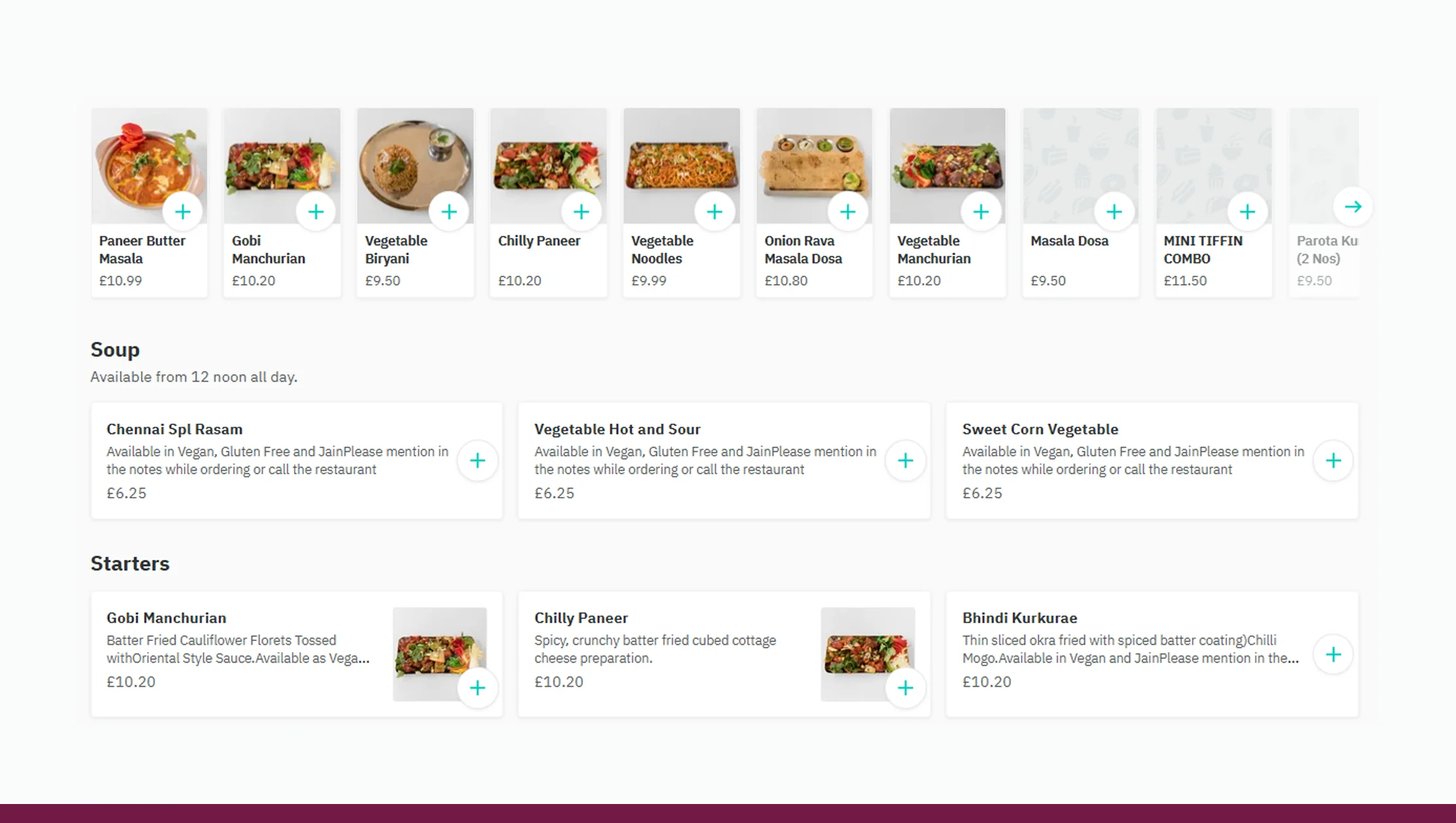
Responsible image scraping is essential. Follow these guidelines:
-
Extract only publicly available data
Toters content is visible without logging into protected areas.
-
Avoid excessive crawling
This prevents server load or rate limiting.
-
Use scraped images for research, analytics, or AI—not resale
Scraped images cannot be misrepresented as original work.
-
Follow regional data compliance laws
(MENA regions may have unique data usage guidelines.)
Using a scraping service ensures compliance and reliability.
Why Businesses Prefer Automated Toters Image Scraping
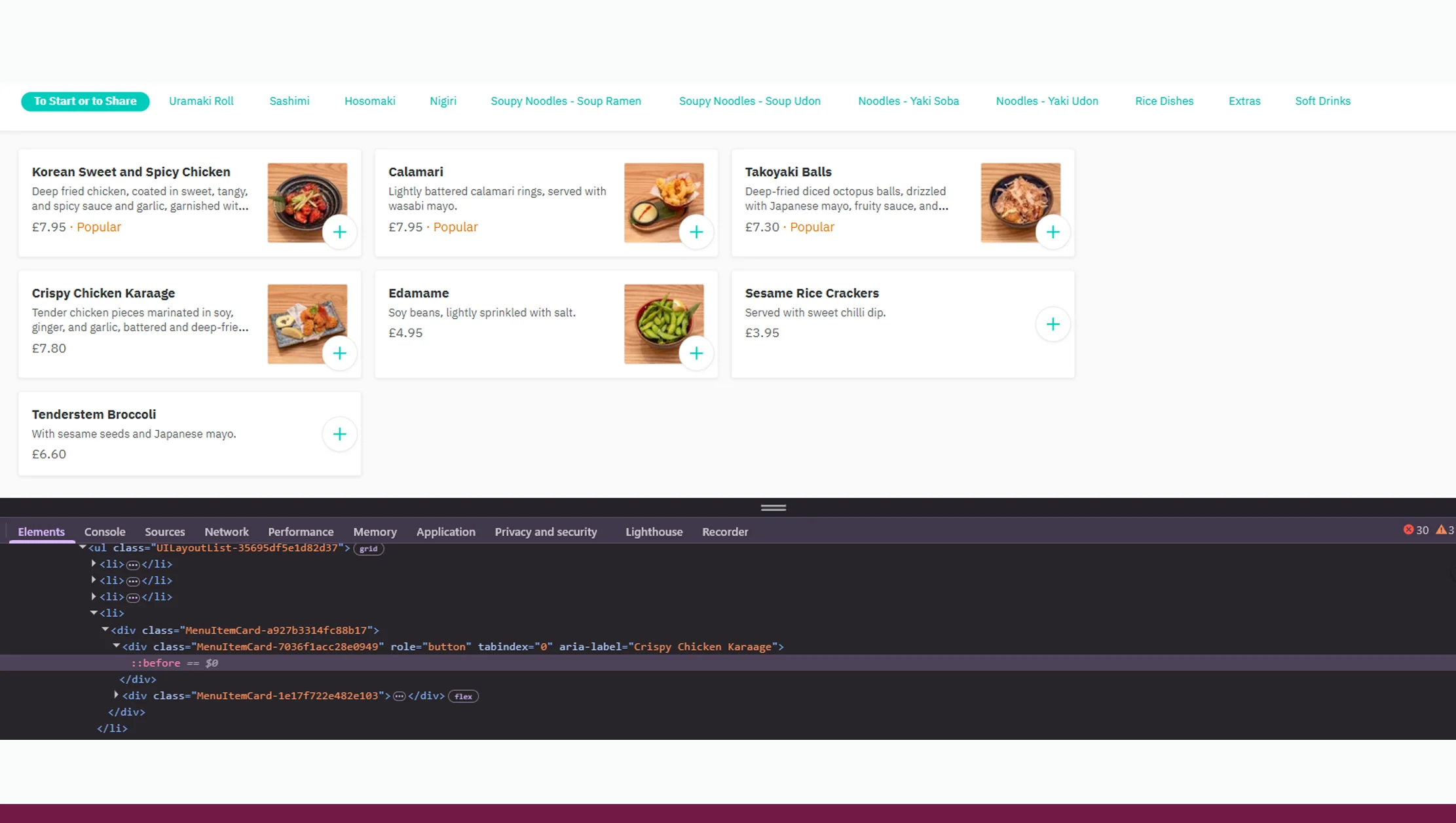
Manual collection is slow and inconsistent. Automated scraping provides:
-
Bulk Image Downloads
Thousands of images in minutes.
-
High Accuracy & Zero Human Errors
Automated scripts remove manual inconsistencies.
-
Structured Metadata
Each image is paired with:
- Category
- Dish name
- Price
- Restaurant ID
-
Consistent Formatting
Uniform file naming and folder structure.
-
Faster Market Insights
Daily or weekly scraping delivers up-to-date visuals for research.
-
API-Based Delivery
Real-time image URLs and metadata delivered through REST APIs.
-
Cost Efficiency
No manual workforce required to download images.
How Real Data API Helps with Toters Restaurant Image Scraping
We provide end-to-end Toters scraping services including:
-
Restaurant Image Scraping API
Get restaurant-level data including logos and banner images.
-
Menu Image Scraping
High-resolution images for all dishes on Toters.
-
Full Restaurant Dataset Extraction
Including:
- Names
- Cuisine
- Menu items
- Prices
- Availability
- Ratings
-
Automated Image Classification
AI-based detection of:
- Cuisine type
- Dish category
- Promotional banners
-
Cloud Delivery
Data provided via:
- AWS S3
- GCS bucket
- JSON API
- CSV + ZIP download
-
Real-Time & Scheduled Crawls
Set hourly, daily, weekly, or monthly scraping frequency.
-
100% Custom Scraping Workflow
Tailored output:
- Image URLs
- Downloaded JPG/PNG files
- Labeled datasets
- Tags for AI training
Industries Using Toters Restaurant Image Data
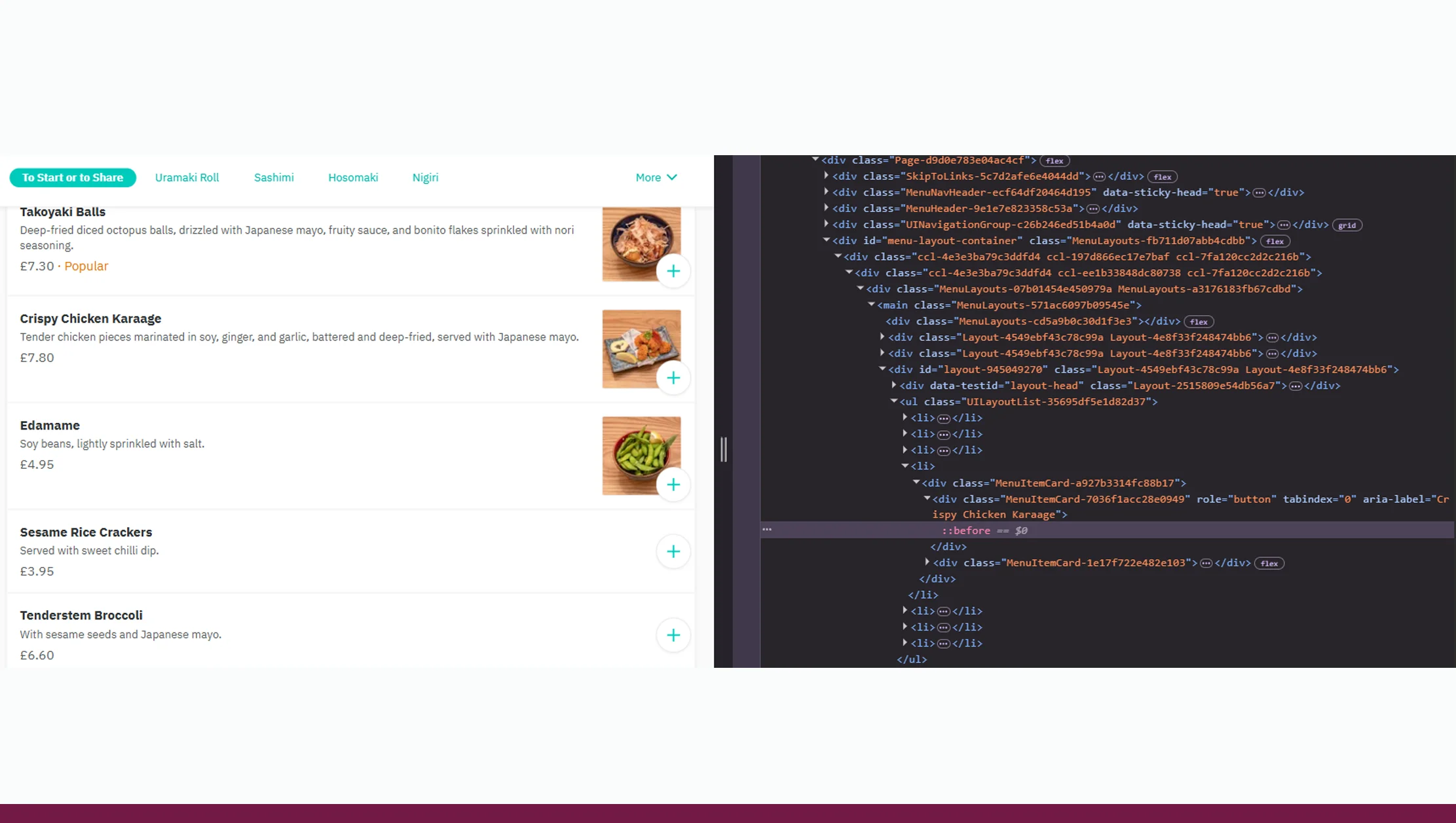
Toters image scraping benefits multiple sectors:
-
Food Delivery Startups
Improve user experience with enriched menus.
-
AI/ML Labs
Train food recognition models with diverse image datasets.
-
App Developers
Use restaurant images for UI prototyping or menu apps.
-
Market Research Companies
Understand visual marketing patterns in Middle Eastern food culture.
-
Design & Branding Agencies
Analyze competitors’ visual strategies.
-
Restaurant Chains
Benchmark quality of dish and menu imagery.
-
Cloud Kitchen Platforms
Optimize product photography based on visual trends.
Conclusion: Toters Image Scraping Unlocks High-Value Food-Tech Insights
Web scraping restaurant image collection from Toters is a game-changer for any business operating in the food ordering, food-tech, AI, or restaurant intelligence ecosystem. From extracting full-resolution dish photos to gathering brand logos and promotional banners, Toters' rich visual data supports a wide variety of applications—competitive intelligence, menu optimization, AI/ML model training, trend research, and more.
Instead of manual, inconsistent image downloading, automated Toters scraping delivers:
- Clean, structured, and bulk restaurant images
- Full restaurant & menu metadata
- Automated workflows & scheduled scraping
- Real-time, accurate datasets
- Support for multiple cities across Lebanon & Iraq
Whether you're building a new food app, analyzing visual trends, training AI models, or benchmarking competitor restaurants, Connect with Real Data API for Web Scraping Restaurant Image Collection from Toters and get unparalleled insights and high-value datasets.













